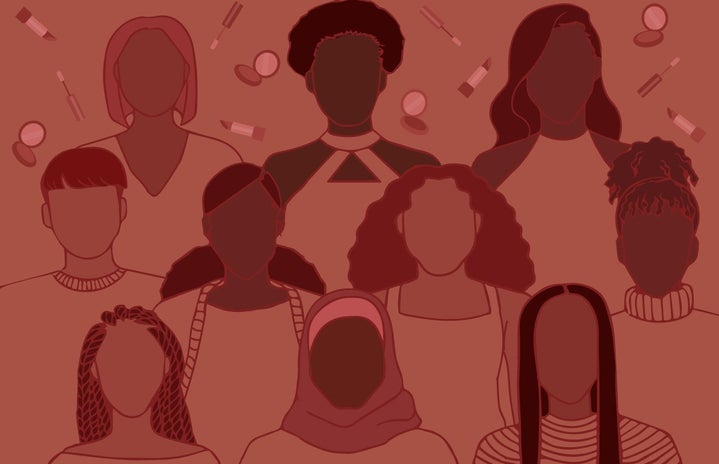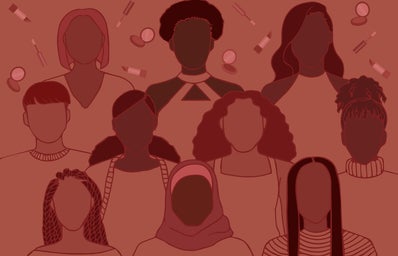As a reader and a writer, I deeply value books with diverse characters. I mean, who doesn’t? There are so many humans on this planet and not everyone’s the same. Why not highlight and represent how life really is? Well, that hasn’t always been the case. There’s a lack of diversity in media and books, and we can change that.
Before my Her Campus team announced our Black History Month series, I had been thinking a lot about what it means to write diverse characters. Specifically, how white writers should write diverse characters. In one of my classes, we had a group discussion about writing from the perspective of characters (for instance) who are not the same gender, sexuality, or race, and how we should go about that. This discussion inspired me to write on the topic.
As a writer, I tend to create characters who are completely original in their own way. I have characters of color, as well as characters with different sexualities and gender seperate from my own. My characters are inclusive because that’s just how they came to be. Does that mean I know what it means to be black? NO. But my character does. And that’s when they need to be represented in the right way.
STEREOTYPING
Relying on stereotypical ideas and notions about another race or ethnicity is something writers can easily fall into and does not help generate inclusion. It doesn’t show how diverse society really is. Race is a big part of who your character is and how their race has affected their experiences. But don’t have that character in your book JUST to make it diverse. Give them thoughts and personality– don’t tokenize them.
DO YOUR RESEARCH
When Ashley Woodfolk came to Wells as part of the visiting writers series, she touched on the topic of how she goes about writing diverse characters. She said she reached out to a lot of her friends and people who could identify with her characters so she could get multiple forms of feedback and give them the proper representation they deserve.
A white writer shouldn’t write a book about racial issues because it’s not something they themselves have experienced, and will never have a firsthand understanding of those issues. That’s why, to give a proper representation, it’s important to read #OwnVoices books to gain knowledge and have a better understanding of who your character is. You won’t fully know what they experienced since we all experience things differently but you can represent them accurately.
FETISHIZING CHARACTERS
Using foods to describe people of color is something writers should be aware of because it comes off as a fetishization. I once made the mistake of describing a character I wrote in a short fantasy story as a type of chocolate. Thankfully, I had a friend of mine beta reading the story and they properly corrected my word-choice and lack of knowledge. I had seen those references in books I’d read and didn’t think much of the descriptions until I was properly educated with its context and now learned from that mistake.
The problem with fetishization is that it’s NOT a compliment, even though it comes off as one. It’s actually micro-aggression designed as a compliment. It’s like when someone says: “She’s pretty for a black woman.” THAT IS NOT A COMPLIMENT. THAT’S RACIST.
THE BLACK BEST FRIEND
How many movies have you seen with a black side-character who is just there only to support the main white protagonist with their comic relief and, well, their life? They’re always the first to get killed off in a movie. Stop, please.
This also goes for all those black characters who are merely the side-characters, who are only there to help the protagonist be “the white savior.” It’s yet another form of micro-aggression that happens very often in movies, only showing that black characters will only ever be “the best friend.”
BOOKS YOU NEED TO READ WRITTEN BY BLACK WRITERS
Now I want to share a list of amazing YA books written by amazing authors of color. I included a few I’ve read and some I haven’t but are worth checking out.
Angie Thomas The Hate U Give
Jason Reynolds Long Way Down
Nicola Yoon The Sun is Also a Star
Dhonielle Clayton The Belles
Tiffany D. Jackson Monday’s Not Coming
Justin A. Reynolds The Opposite of Always
Tomi Adeyemi Children of Blood and Bone
Akwaeke Emezi Pet
Elizabeth Acevedo The Poet X
Ibi Zoboi American Street
Jay Coles Tyler Johnson Was Here
Ronni Davis When the Stars Lead to You
Nic Stone Dear Martin
Ashley Woodfolk The Beauty That Remains
ALL IN ALL…
Be mindful and educate yourself. But also encourage and spread diversity in books. Write diverse characters. Read diverse books. Support authors of color. Break down inequality. Otherwise, we are relying on stereotypes as representation and that is harming our society.
xx Kenzie
P.S. Check out this beautiful article Elle Magazine just did. It’s amazing.



